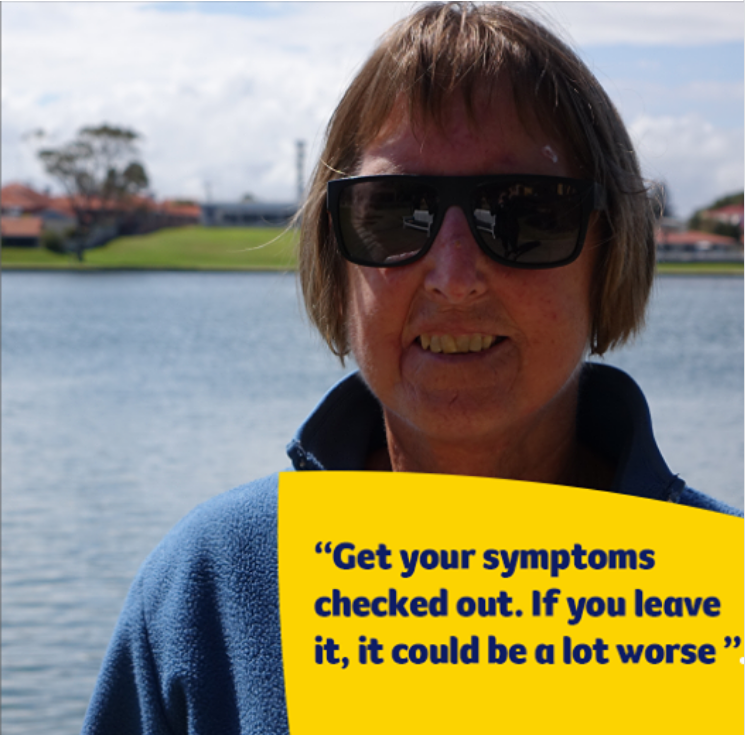Skin cancer champion
Go and get it checked. No ifs or buts.
Ann’s story
Retiree Ann had noticed some tiny white bumps amongst her eyelashes, smaller than the styes she often gets. When she visited her eye doctor as follow up to recent treatment on her ingrown eyelashes, a biopsy was taken. In May 2018 she took off to Broome to spend her regular 6 months a year there and received a phone call a couple of weeks later advising she had a basal cell carcinoma (BCC), the most common type of skin cancer. While BCC’s are usually relatively slow growing, her regular eye check-ups suggested it may have been fast growing. Ann ended up delaying her return to Perth for the surgery due to family coming to visit from the United Kingdom.
By the time she returned to Perth for surgery, two consecutive days of surgery were required to cut out the cancer and reconstruct her eye. A piece of her cheek had to be transplanted over her eye and another surgery was required to allow her to see again.
Ann explained it’s been her husband Denis who has got her through this journey. She sometimes feels self-conscious when she sees someone who she hasn’t seen since before the surgery and says if it weren’t for her husband who loves her for who she is underneath, this period would have been much more difficult. Ann firmly believes that in addition to self-monitoring any changes to spots on her skin, regular health checks and good doctors are very important in detecting cancer.
Ann’s advice
‘Don’t second guess it; just go to the clinic and get it checked out. That’s the best advice I can give to anyone who’s noticed an unusual change to their skin’.
‘You might be scared about having something done but if you leave it, it could be a lot worse’.
‘Be vigilant with any changes in your skin. A lot of the time they say the damage is done when you’re young. Because your skin changes anyway as you age so it’s important to be vigilant’.
‘It’s always best to be on the safe side’.
Checking your own skin
Skin cancers can grow quickly, so it’s important to become familiar with your own skin (including skin not normally exposed to the sun) through regular self-checks. Find out the steps and some examples of what to look for.
Consult a doctor as soon as possible if you notice any new or changed spots, moles or freckles. Changes to look out for include shape, colour or size.

